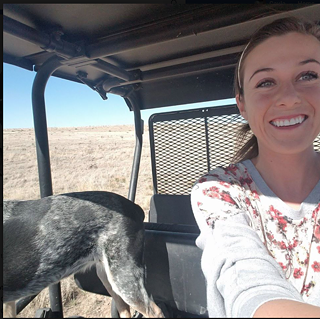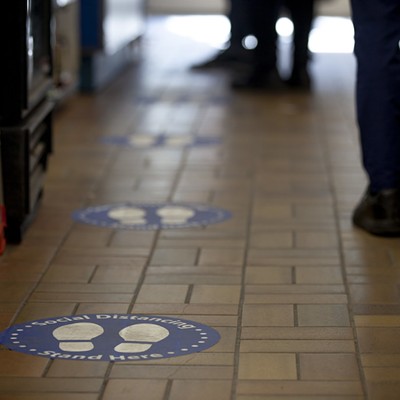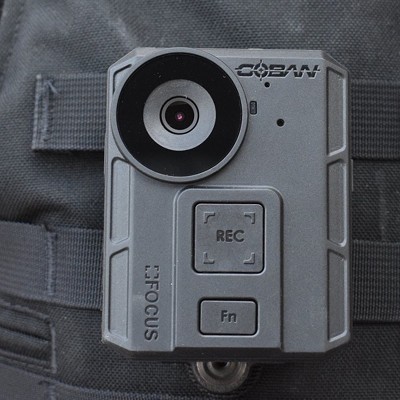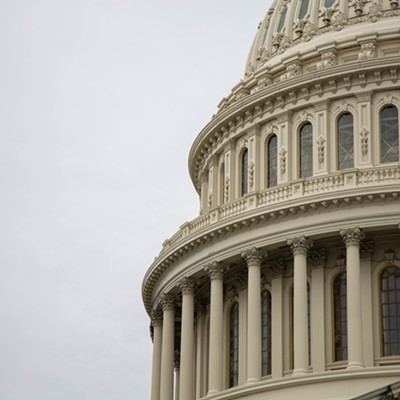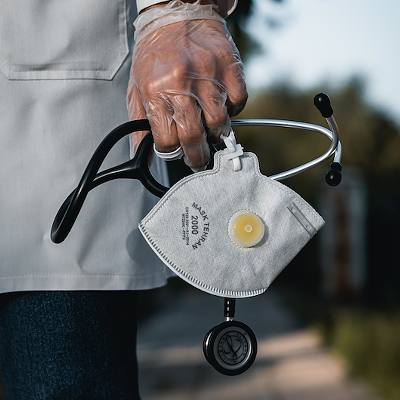On Friday, President Donald Trump officially declared that all houses of worship were to be considered essential services.
"Some governors have deemed liquor stores and abortion clinics essential, but have left out churches and houses of worship. It's not right. So I'm correcting this injustice and calling houses of worship essential," Trump said. While he did threaten to override the decisions of state governors, it is unclear how this statement will play out. State officials, such as Gov. Kate Brown, have already restricted public religious activities in the interest of public health and safety.
Still, Trump insisted that virtual adaptations were simply not cutting it, and that the reopening of religious institutions was to be made a national priority.
In its application to launch the county's Phase One reopening program earlier this month, the Deschutes County Board of Commissioners added a note at the end of its application, asking that churches be reopened.
In response, a coalition of local clergy penned a letter to the Source, reminding the public that the safety of the public was their main priority.
“None of us foresee the physical reopening of our church buildings in the near future," the clergy members wrote. "We feel a tremendous responsibility to make decisions that are in service to the health and safety of the greater whole. We will continue to strive to embody love for our neighbor and we recognize this does not come without sacrifice for the ways in which we historically have met together."
The leaders suggested that these services were actually more accessible than ever before, and that theology does not equate to a physical place of worship. While local clergy admitted that parts of the closures were painful, they argued that their doors (metaphorically speaking) were never shut at all.
Take a look at local clergy's response to places of worship being "closed" in the video below:
Reverend Jen Stuart, Lead Pastor of Bend Church (United Methodist), noted that churches focused on reopening rather than keeping their members safe may have lost sight of the bigger picture. “We’ve had to adapt, because we understand that it isn’t safe to be together,” she said. “We know that it isn’t safe. We’re not going to rush to try and get back to normal as quickly as possible, because that isn’t our call as Christians. It’s our call to keep people healthy, bring people together and protect one another.”
Stuart said while adjusting to new ways of service had been a learning curve, she'd seen no push-back from community members.
“Our congregation has been very adaptable. We don’t have anyone complaining or asking us to do unsafe things, which is really a gift. I’m so grateful to be in Bend and be part of a clergy group where we’re all working together, supporting one another, and moving through this strange time together; a time that none of us anticipated or have previously been through.”
Rev. Stuart explained that adapting was tricky, but rewarding. “The adjustments we’ve had to make have been interesting; originally we wanted to do live services, but relying so heavily on Wi-Fi proved difficult. Now we have everyone in their own homes recording themselves singing, reading scriptures; they're all taking videos on their smartphones. Our genius teenager has been editing everything together, which he learned to do at his high school. He’s been putting together our Sunday services.”
“Your civil liberties and your Christian duty are two different things."- Reverend Jen Stuart
tweet this
Rabbi Johanna M. Hershenson, of Bend’s Temple Beth Tikvah, agreed that the adaptations and adjustments had been interesting, eye-opening and ultimately positive. “By the middle of March we had already decided to move online,” she explained. “Over two-thirds of the people who show up to our services are 65 and over. It was identified that this population should be concerned. The transition to Zoom was honestly easy. It was a fun challenge. The most difficult part was helping support those who didn’t grasp the technology. This required some mentoring so that everyone could connect. All of the activities we offer to help people connect have continued to thrive, we’ve just switched from one platform to another.”
Hershenson also noted that being forced to adapt has led to positive, lasting changes. “There was so much technology available that we weren’t using,” she said. “Even when things get back to normal, this technology will continue being a major part of our lives. It helps us connect in ways we never could before. When county commissioners extended an invitation for local clergy to put pressure on the state, really, we all felt like our institutions were open and thriving. Those who aren’t engaged in their local religious communities might see the closures as a pity, but those who are actively engaged are excited.
Reverend Steven Koski, lead pastor at First Presbyterian Church in Bend, explained that getting familiar with technology had actually facilitated connection in ways never before considered. “We broadcast over Facebook and through our website,” he explained. “Everything is prerecorded, but we make sure there’s a pastor present to interact and respond to the comments; answer questions. Right now, we’re reaching four times the number of people as we were providing in-person worship. Rather than servicing 400 to 450 people, we are reaching over 2,000 viewers. We still call every member of our community to check in, see how they are and see what they need. We make weekly calls to those with specific needs, such as the elderly.”
Despite the doors being “closed,” Rev. Koski confirmed that the church was as open as ever. “The church is not the building, therefore we never closed. We just adapted and changed. Closing the building is an expression of our faith—our primary responsibility is to love our neighbor and protect the well-bring of our community members. You know the saying, ‘Love is patient, love is kind?’ The kind of love we practice is all about sacrificing for the sake of others.”
“Your civil liberties and your Christian duty are two different things,” Rev. Stuart concluded. “I would suggest that some take a step back and look at their theology. The church is not a building, the church is the people. If we gather in a building where people die because we have gathered, we have lost our way. Really, this isn’t a political matter or a theological matter - it’s a matter of science and public safety. Why would we fight rules surrounding keeping the populous alive? I’m truly thankful that we have a governor that's keeping science at the forefront. We’re Christians, we have to think about the whole body, not just left or right or center. This virus doesn’t care if you’re Republican or liberal or independent. We have to get over that way of thinking.”

!['The Church is Not a Building' ▶ [With Video]](https://media2.bendsource.com/bend/imager/u/blog/12549940/johanna.jpg?cb=1680199492)
!['The Church is Not a Building' ▶ [With Video]](https://media1.bendsource.com/bend/imager/u/blog/12549941/reverend_koski.jpg?cb=1680199493)
